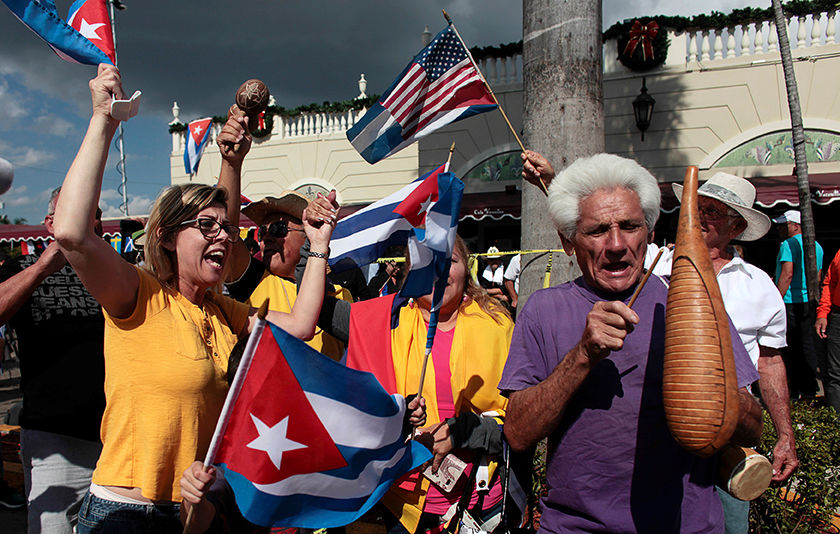If you grew up, like me, a Cuban-American after the revolution, you grew up waiting for the time “despues de Fidel” or after Fidel. After some years of waiting, this turned into waiting for the moment “cuando se muera Fidel,” or after the death of Fidel. In that magical time, sons and daughters would once again see the parents who grew old alone on the island, and a girl who wept in the desolation of exile would see with the eyes of her face, not her memory, and the palmas reales standing guard over the sea.
In Cuba people also looked forward to post-Fidelismo. Depending on their enculturation, they foresaw a time when the revolution would finally fulfill its promises, or a moment when the exhausted people would finally sit down and refuse to continue on their long forced march.
The event that many millions of us — generations of us — have been waiting for has come. In Cuba, the people are “mourning,” but there is laughter in their hearts. In Miami, the people are joyful, but inside we remain sad. It’s normal for us to cry and laugh at the same time: paradox is the consequence of our history.
We are from a little but consequential island, one that Cristobal Colon (Christopher Columbus) called “the most beautiful land human eyes have seen,” and one populated by a people blended and distilled, like our rum. The blend is obvious to the eyes and ears. The skin of Cubans comes in every shade, from deepest ebony to palest pink. Our hair is silky and black, like our fathers’ who came from China, or curly gold, like our Gallego mothers’ tresses.
Our music starts with the Spanish contradanza and spins off gloriously with the addition of complex African cross-rhythms into the overpowering beats of the danzón, mambo, son and cha-cha-cha. Our music inhabits us and we can recognize a Cuban woman dancing with half a glance and from far away. Her whole body elegantly animated by music, not one muscle out of sync. It is unmistakable.
It is the mystique of Cuba — its natural beauty, joyful people, its tobacco fragrance, the rhythms of its drums — that form another paradox. What’s lovely about Cuba has closed the eyes of the world to what’s ugly in Cuba. One of the most painful things a Cuban experiences is the relentless whitewashing of the crimes of the Castros — and, even worse, the refusal to acknowledge that millions of people, right here in our hemisphere, have lived for decades without the most basic human rights.
These rights always bear enumerating, especially for Americans who forget they do not come naturally: liberty of religion, speech, association, privacy, assembly and movement. Imagine decades, generations, living and breathing and dying not knowing what it’s like to go to church on Sunday without wondering which of the others present is an informant. Imagine everything in your life, and in your children’s lives, at the mercy of a government without mercy or even the first inkling of justice.
President Obama famously opened our country to Cuba. Telecom companies, airlines, cruise ship firms and hoteliers are making deals with the military conglomerate that has a death grip on all capital and resources on the island. Those companies are going to enrich themselves with the beauty of Cuba. But the ugliness will remain hidden in plain sight.
When American tourists go on their guided tours through the parts of La Habana that have been painted and knocked back together for the benefit of tourists, they won’t know that the smiling, pretty people who serve them are essentially slaves. The hotel companies pay their decent salaries directly to the government. The workers get 20 Cuban pesos a month — a worthless sum. They are brave in their persistent effort to make a living. Dissidents are even braver, and face an increase in abuses and disappearances since the thaw. It is up to our next president to demand something, anything, from the dictatorship in exchange for the plumping up of rulers’ Swiss bank accounts.
Fidel is certainly, finally, dead. And while a man’s death should not be a cause for celebration (especially one whose eternal salvation is in doubt), Cubans must be forgiven if their hearts thrill with hope. Perhaps it is time, finally, for life in Cuba to live up to its mystique. We have waited much too long.

